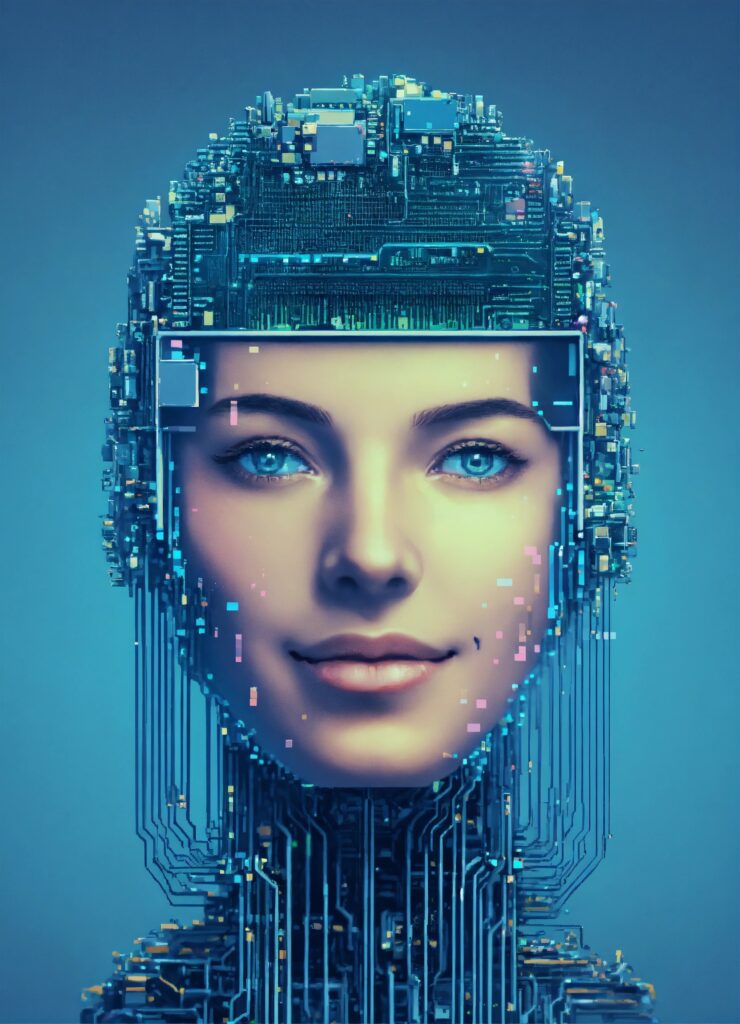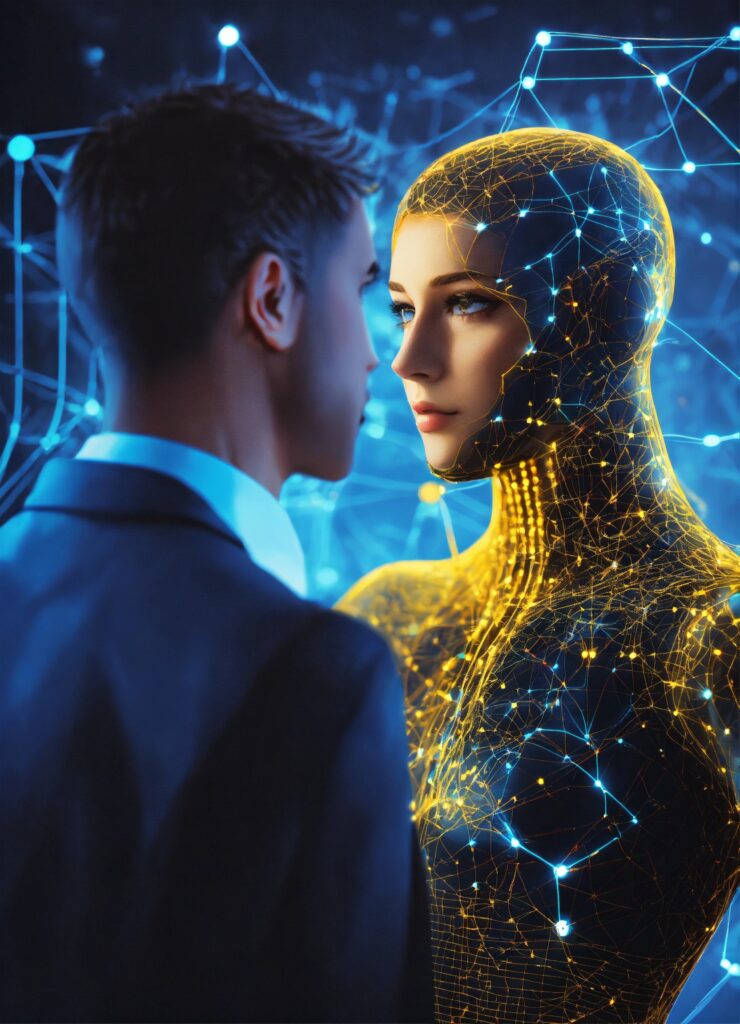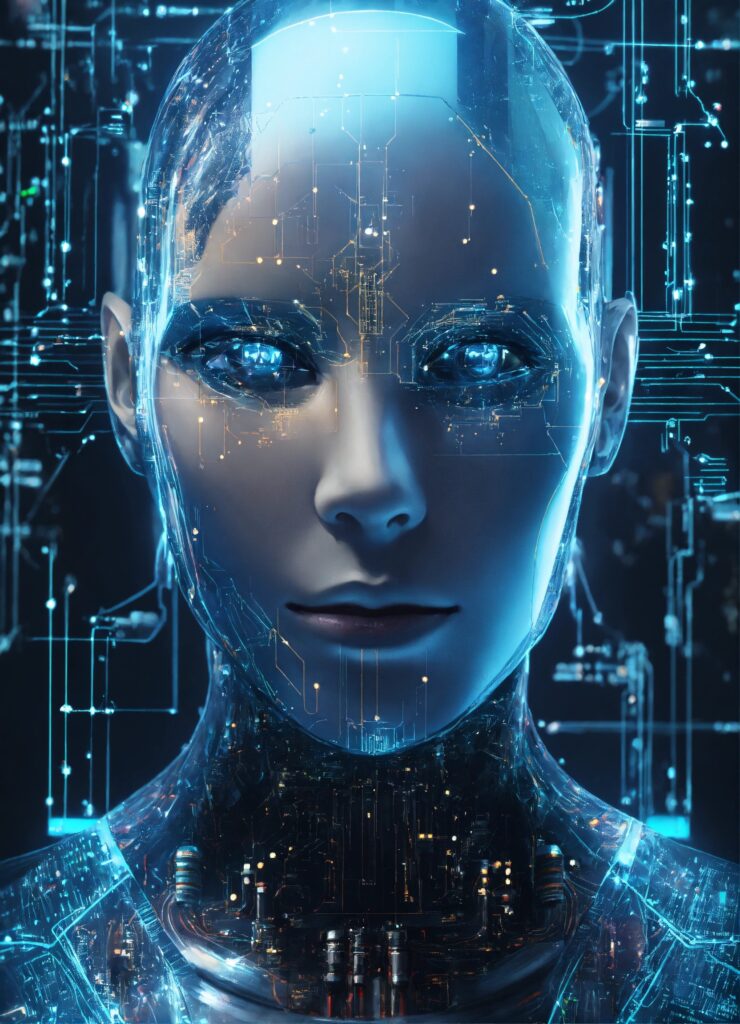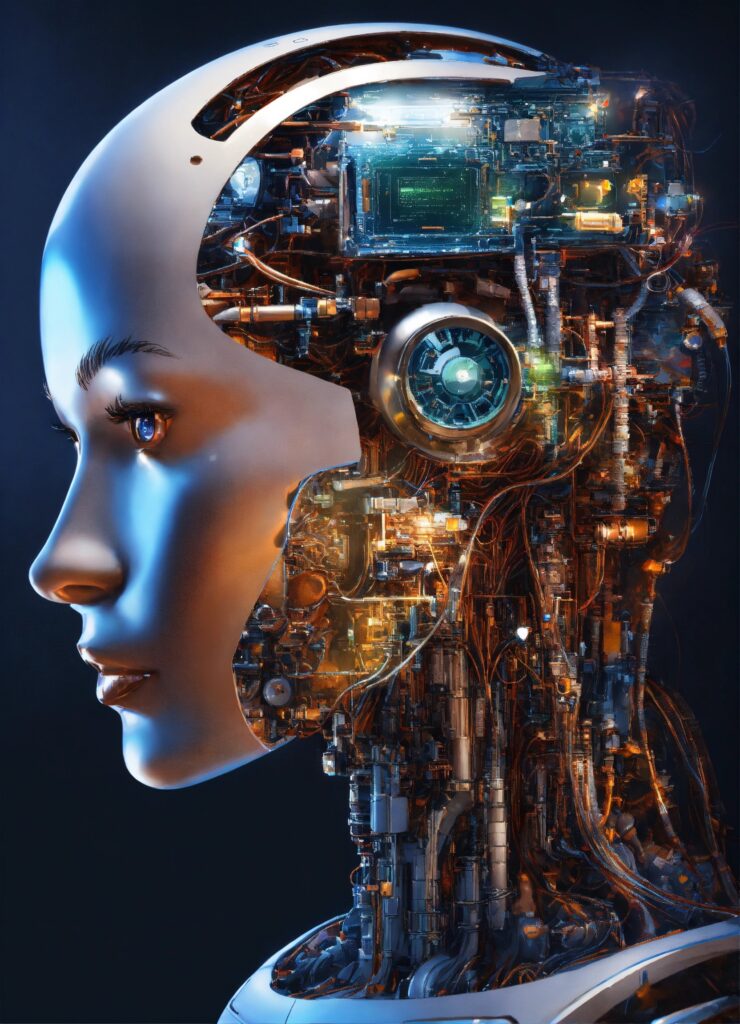-
Dec, Tue, 2023
What is artificial intelligence (AI)?
What is artificial intelligence (AI)?
AI, or Artificial Intelligence, refers to the simulation of human intelligence in machines that are programmed to think, learn, and perform tasks typically requiring human intelligence. AI enables machines to analyze data, recognize patterns, make decisions, and solve problems in a manner similar to human cognition.
Machine Learning: A subset of AI that allows machines to learn from data without being explicitly programmed. It involves algorithms that learn patterns and make predictions or decisions based on the input data.
Deep Learning: A type of machine learning that uses neural networks with many layers (deep neural networks) to process complex data. Deep learning excels in tasks like image and speech recognition, natural language processing, and more.
Natural Language Processing (NLP): It involves enabling machines to understand, interpret, and generate human language. NLP is behind applications like virtual assistants, language translation, sentiment analysis, etc.
Computer Vision: AI enables machines to interpret and understand visual information from images or videos. Computer vision is used in facial recognition, object detection, autonomous vehicles, and more.
Robotics: AI-driven robots are designed to perform tasks that typically require human intervention. They are utilized in manufacturing, healthcare, space exploration, and other industries.
AI applications span various fields such as healthcare, finance, automotive, entertainment, education, and more. AI systems have the ability to analyze large volumes of data, learn from it, and make decisions or predictions, making them highly valuable in automation, optimization, and problem-solving.
The field of AI continues to evolve rapidly, driven by advancements in technology, computational power, access to vast amounts of data, and innovative research. While AI presents numerous opportunities and benefits, it also raises ethical concerns, including data privacy, bias in algorithms, job displacement, and the impact on society, requiring careful consideration and ethical deployment.
Machine Learning: It’s a subset of AI that focuses on enabling machines to learn from data without being explicitly programmed. It includes supervised learning, unsupervised learning, and reinforcement learning.
Natural Language Processing (NLP): This field involves enabling machines to understand, interpret, and generate human language. NLP is the technology behind voice assistants, language translation, sentiment analysis, etc.
Computer Vision: It allows machines to interpret and understand visual information from the real world. It’s used in facial recognition, object detection, autonomous vehicles, and more.
Robotics: AI-driven robots are designed to perform tasks that typically require human intervention. They are used in various industries, including manufacturing, healthcare, and logistics.
Healthcare: AI is used in diagnostics, personalized medicine, drug discovery, and remote patient monitoring to enhance healthcare services.
Finance: AI is employed for fraud detection, algorithmic trading, risk assessment, and customer service in the financial sector.
Automotive Industry: It’s utilized in self-driving cars, predictive maintenance, and improving the overall driving experience.
Retail: AI powers recommendation systems, demand forecasting, inventory management, and personalized shopping experiences.
Education: AI is used in adaptive learning platforms, intelligent tutoring systems, and automated grading systems.
![Advantages And Disadvantages Of Artificial Intelligence [AI]](https://tradewithakanksha.com/wp-content/uploads/2023/12/the-power-of-AI-1024x585.jpg)
AI raises ethical concerns related to privacy, bias in algorithms, job displacement due to automation, and its impact on society. Ensuring AI systems are fair, transparent, and aligned with ethical standards is crucial for its responsible deployment.
Overall, AI has the potential to transform industries, improve efficiency, and revolutionize the way we live and work, but it also requires careful consideration and regulation to address its ethical and societal impacts.
The future of Artificial Intelligence (AI) holds numerous possibilities and advancements that could significantly impact various aspects of our lives. Here are some potential ways AI might work in the future:
Advanced Machine Learning Algorithms: Future AI systems may utilize more sophisticated and efficient machine learning algorithms. This could lead to better predictions, faster learning, and improved decision-making capabilities across diverse applications.
AI in Healthcare: AI is expected to play a crucial role in healthcare, aiding in early disease detection, personalized medicine, drug discovery, and treatment optimization. AI-powered medical devices and diagnostic tools could revolutionize patient care.
Autonomous Vehicles: Advancements in AI will likely enhance autonomous vehicles, making them safer, more efficient, and capable of navigating complex environments. This could lead to widespread adoption of self-driving cars and improved transportation systems.
Natural Language Processing (NLP) and Conversational AI: Future AI systems are anticipated to have more natural and human-like interactions. NLP technologies will likely improve language understanding, making virtual assistants and chatbots more conversational and intuitive.
AI in Industry and Robotics: Industries are expected to increasingly rely on AI-powered robotics for automation and optimization of manufacturing processes, logistics, and supply chains. Robots equipped with AI could perform intricate tasks with precision.
Ethical and Explainable AI: Future AI models may prioritize ethics, fairness, and transparency. Efforts to create AI systems that are more explainable, interpretable, and accountable are likely to increase, addressing concerns about biases and decision-making opacity.
AI for Climate Change and Sustainability: AI could be utilized to tackle environmental challenges, such as climate modeling, resource optimization, and sustainable practices in various industries, contributing to a greener future.
AI-Augmented Creativity: AI tools might collaborate with humans in creative fields like art, music, design, and literature, aiding in idea generation, content creation, and artistic expression.
Personalization and Hyper-Personalization: AI-driven personalization is expected to become more refined, offering hyper-personalized experiences in entertainment, education, shopping, and more, tailored to individual preferences and behaviors.
AI Ethics and Regulation: There will likely be increased focus on AI ethics, privacy, and regulation. Developing and implementing ethical guidelines and regulatory frameworks to govern AI use will be crucial to ensure responsible deployment.
The future of AI will be shaped by continuous technological advancements, ethical considerations, societal needs, and regulatory frameworks. It holds great potential to positively impact various domains while requiring careful management to mitigate potential risks and ethical challenges.




